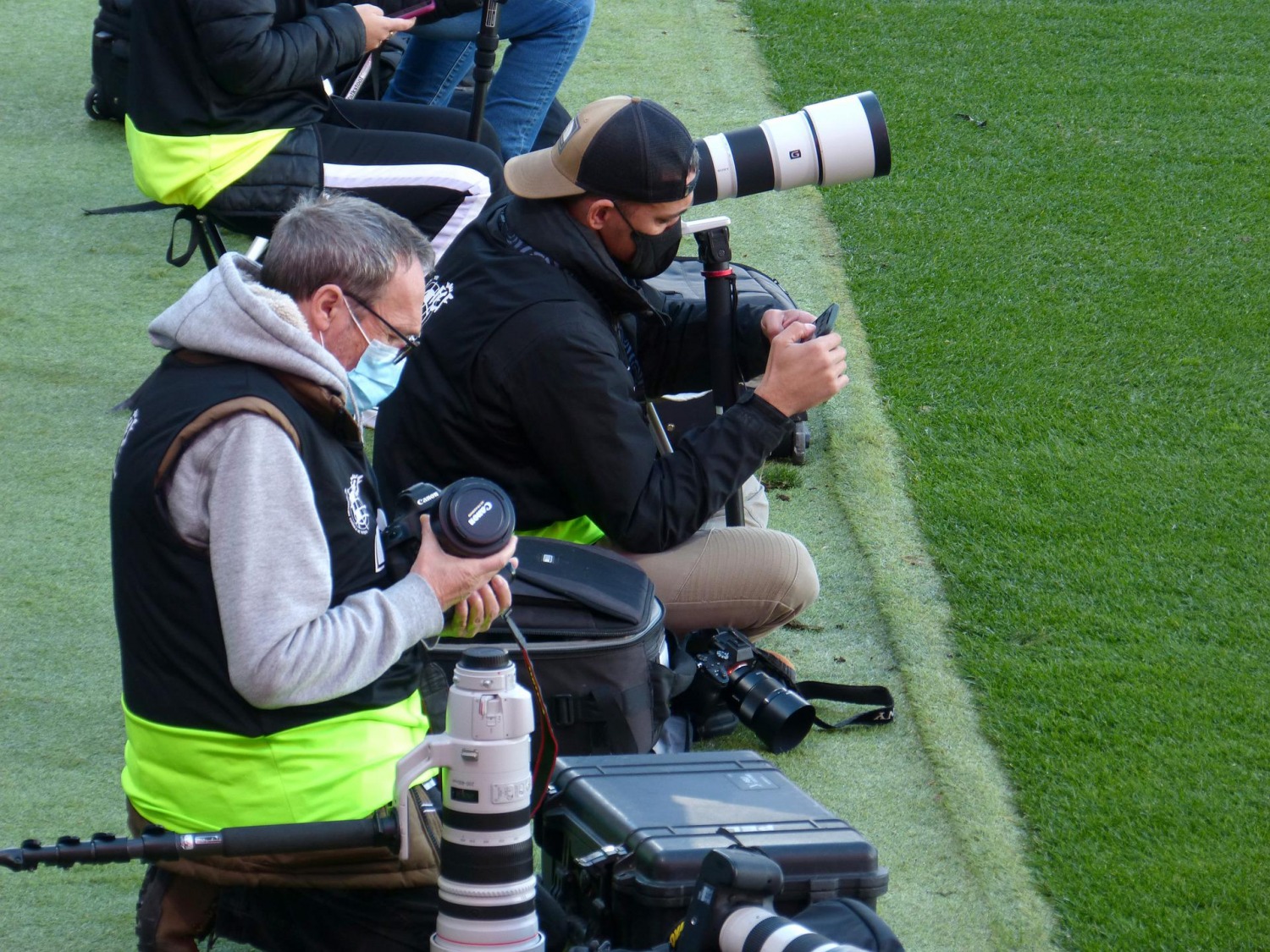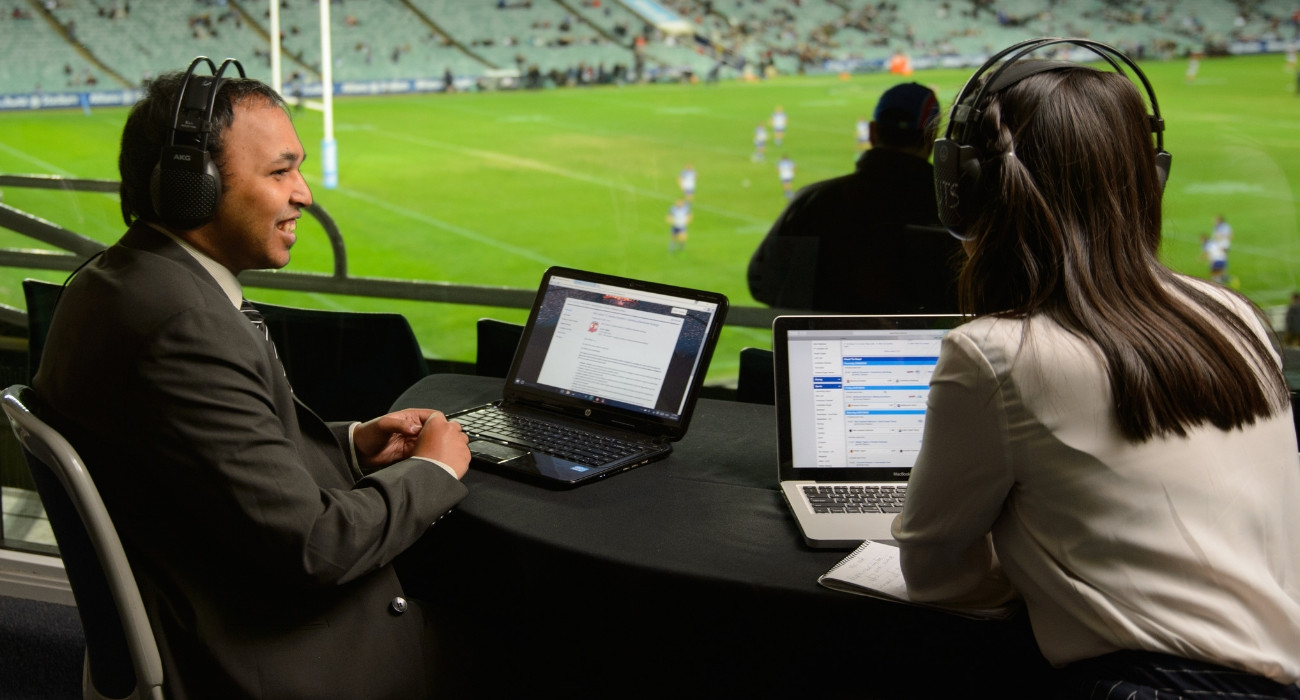I. Introduction to Sports Journalism

A. Defining the Role of a Sports Journalist
Sports journalism is a specialized field within journalism that focuses on reporting, analyzing, and providing commentary on sports-related news and events. Sports journalists cover a wide range of activities, including professional and amateur sports, major sporting events, and individual player stories. They play a crucial role in bringing sports-related information to the public.
B. Importance of Sports Journalism in the Media
Sports journalism holds significant importance in the media landscape. It attracts a large audience and plays a vital role in delivering sports news and stories to fans around the world. Sports journalism provides in-depth analysis, highlights memorable moments, and gives a platform to athletes to share their experiences. Furthermore, it helps shape public opinion about sports and influences conversations both on and off the field.
II. Gaining Relevant Education and Experience
A. Pursuing a Degree in Journalism or Communications

- Choosing the Right Program
To become a sports journalist, it is essential to pursue a degree in journalism or communications. When selecting a program, aspiring sports journalists should consider factors such as the curriculum, faculty expertise, and internships opportunities. Look for programs that offer courses specifically tailored towards sports journalism.
- Specializing in Sports Journalism
Within a journalism or communications program, students can choose to specialize in sports journalism by taking elective courses related to the field. Some educational institutions have dedicated sports journalism tracks or concentrations. These specialized courses provide the necessary knowledge and skills required to excel in sports journalism.
B. Participating in Internships and Volunteer Work
- Sports Media Internships
Internships are an excellent way to gain practical experience in the field of sports journalism. Seek out internships with sports media outlets, sports teams, or sports organizations. Internships provide valuable hands-on experience and allow aspiring sports journalists to build a professional network.
- Contributing to Local Sports Publications
Getting involved with local sports publications, such as newspapers or magazines, can provide valuable experience and exposure. Contributing articles or volunteering to cover local sporting events helps aspiring sports journalists refine their writing skills and gain visibility within the industry.
III. Developing Essential Skills for Sports Journalism

A. Strong Writing and Reporting Skills
- Researching and Interview Techniques
Sports journalists must possess strong research skills to gather accurate information about sports teams, players, and events. They should also learn effective interviewing techniques to extract insightful and compelling quotes from athletes, coaches, and other relevant individuals.
- Crafting Engaging Sports Stories
Being able to write engaging sports stories is a critical skill for sports journalists. They should learn how to structure their articles, captivating the reader’s attention from the beginning. Additionally, developing the ability to incorporate statistical analysis and provide context enhances the quality of their stories.
B. Knowledge of Sports and the Sports Industry
- Following Various Sports and Leagues
A sports journalist must have a broad knowledge of different sports and follow various leagues to provide comprehensive coverage. This involves staying informed about current events, game results, player performances, and industry trends across different sports.
- Understanding Sports Terminology and Rules
To effectively communicate with their audience, sports journalists need to understand the terminology and rules of different sports. This knowledge allows them to explain complex concepts and strategies accurately.
C. Multimedia Skills and Adaptability
- Utilizing Digital Tools for Reporting
In today’s digital age, sports journalists must be proficient in using various digital tools for reporting. This includes skills such as leveraging social media platforms, creating multimedia content, and engaging with online audiences.
- Being Versatile in Mediums – Print, Online, Audio, Video
Sports journalists should be adaptable and able to work across different mediums, including print, online, audio, and video. This versatility allows them to effectively convey their stories and reach different audiences.
IV. Networking and Building Connections
A. Attend Sports Events and Press Conferences
- Getting Accredited as a Sports Journalist
Sports events and press conferences are an excellent opportunity for sports journalists to network and build connections within the industry. To attend such events, it is crucial to become accredited as a sports journalist. Accreditation can be obtained by contacting the respective sports organizations or governing bodies and providing them with relevant credentials, such as work samples and a resume.
- Establishing Relationships with Athletes and Coaches
Attending sports events and press conferences allows sports journalists to engage with athletes and coaches on a personal level. Building relationships with these key figures in the sports industry can provide invaluable insights and exclusive interviews. By being respectful, professional, and showing genuine interest in their work, journalists can nurture relationships that may offer them unique stories and perspectives.
B. Join Professional Organizations and Associations
- Sports Writers Associations
Joining sports writers associations provides journalists with opportunities to connect with fellow professionals in the field. These associations often organize events, conferences, and workshops where members can learn from experienced journalists and exchange ideas. Additionally, being a member of a sports writers association can enhance credibility and provide access to exclusive job opportunities within the industry.
- Local and National Press Clubs
Local and national press clubs are platforms where journalists from various disciplines come together. Becoming a member of these clubs allows sports journalists to network with professionals from different media sectors, including print, television, and radio. These connections can lead to collaborations, cross-platform promotion, and career advancements.
V. Job Seeking Strategies

A. Creating a Strong Sports Journalism Portfolio
- Selecting and Showcasing Your Best Work
A strong sports journalism portfolio is crucial for job seekers in this competitive field. Carefully select and showcase your best work, including articles, videos, and podcasts, that demonstrate your skills, expertise, and versatility. It is essential to show a range of topics covered, writing styles, and media formats to provide a comprehensive representation of your abilities.
- Including Different Forms of Media – Articles, Videos, Podcasts
Sports journalism is no longer limited to the written word. Including different forms of media, such as videos and podcasts, in your portfolio not only expands your skill set but also demonstrates adaptability and versatility. Employers value journalists who can create engaging content across various platforms.
B. Networking and Building Relationships with Editors
- Pitching Story Ideas and Contributing Freelance Work
Networking with editors is crucial for job seekers in sports journalism. Pitching story ideas and contributing freelance work to reputable publications not only provides an opportunity for your work to be published but also allows you to build relationships with editors. Ensure that your pitches are tailored to the specific publication and demonstrate your knowledge of their audience and content style.
- Securing a Full-Time Position in Sports Journalism
Securing a full-time position in sports journalism often requires persistence, patience, and building strong industry connections. Explore job opportunities within sports media outlets, broadcasters, newspapers, and online publications. Leverage your network, attend industry events, and maintain an active presence on professional platforms to increase your chances of finding a suitable role.
By following these strategies, both aspiring and experienced sports journalists can enhance their skills, expand their network, and increase their chances of success in the exciting world of sports journalism.



